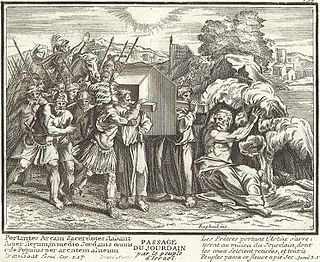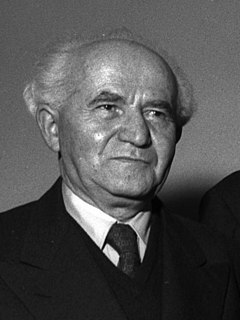 W
WYom HaAliyah, or Aliyah Day, is an Israeli national holiday celebrated annually according to the Jewish calendar on the tenth of the Hebrew month of Nisan to commemorate the Jewish people entering the Land of Israel as written in the Hebrew Bible, which happened on the tenth of the Hebrew month of Nisan. The holiday was also established to acknowledge Aliyah, immigration of Jews to the Jewish state, as a core value of the State of Israel, and honor the ongoing contributions of Olim, Jewish immigrants, to Israeli society. Yom HaAliyah is also observed in Israeli schools on the seventh of the Hebrew month of Cheshvan.
 W
WBen-Gurion Day is an Israeli national holiday celebrated annually on the sixth of the Hebrew month of Kislev, to commemorate the life and vision of Zionist leader, and Israel's first Prime Minister David Ben-Gurion.
 W
WThe Day to Mark the Departure and Expulsion of Jews from the Arab Countries and Iran is a Memorial Day that is marked in Israel every year starting in 2014, on November 30 with the purpose of marking the departure and expulsion of Jews from Arab countries and Iran. November 30 is the date that was chosen since it is symbolically the day following November 29, a day the United Nations Partition Plan for Palestine was adopted, and when many communities of Jews in Arab countries and Iran started to feel the pressure and hostility from their Arab and Persian neighbors and as a result of that were forced to leave their countries. It is based on a law sponsored by MK Shimon Ohayon and passed in the summer of 2014 by the Knesset.
 W
WHerzl Day is an Israeli national holiday celebrated annually on the tenth of the Hebrew month of Iyar, to commemorate the life and vision of Zionist leader Theodor Herzl.
 W
WIndependence Day is the national day of Israel, commemorating the Israeli Declaration of Independence in 1948. The day is marked by official and unofficial ceremonies and observances.
 W
WJabotinsky Day is an Israeli national holiday celebrated annually on the twenty ninth of the Hebrew month of Tammuz, to commemorate the life and vision of Zionist leader Ze'ev Jabotinsky.
 W
WJerusalem Day is an Israeli national holiday commemorating the reunification of Jerusalem and the establishment of Israeli control over the Old City in the aftermath of the June 1967 Six-Day War. The day is officially marked by state ceremonies and memorial services.
 W
WJewish holidays, also known as Jewish festivals or Yamim Tovim, are holidays observed in Judaism and by Jews throughout the Hebrew calendar. They include religious, cultural and national elements, derived from three sources: biblical mitzvot ("commandments"), rabbinic mandates, and the history of Judaism and the State of Israel.
 W
WMimouna is a traditional Maghrebi Jewish celebration dinner, that currently takes place in Morocco, Israel, France, Canada, and other places around the world where Jews of Maghrebi heritage live. It is held the day after Passover, marking the return to eating hametz, which is forbidden throughout the week of Passover.
 W
WIn Israel, Navy Day is celebrated on June 30. At this time in 1948 the Port of Haifa was captured by Israel during the 1947–1949 Palestine war. Traditionally, Navy Day is preceded by Memorial Evening.
 W
WYitzhak Rabin Memorial Day is an Israeli day of remembrance observed annually on the twelfth of the Hebrew month of Cheshvan, to commemorate the life of Zionist leader and Israeli Prime Minister and Defense Minister, Yitzhak Rabin, and his assassination.
 W
WVictory Day is a holiday that commemorates the surrender of Nazi Germany in 1945. It was first inaugurated in the 15 republics of the Soviet Union, following the signing of the German Instrument of Surrender late in the evening on 8 May 1945. The Soviet government announced the victory early on 9 May after the signing ceremony in Berlin. Although the official inauguration occurred in 1945, the holiday became a non-labor day only in 1965, and only in certain Soviet republics.
 W
WVictory in Europe Day is an Israeli national day of remembrance celebrated annually on the ninth of May, to commemorate victory over the Nazis, ending World War II in Europe.
 W
WYom Hazikaron laShoah ve-laG'vurah, known colloquially in Israel and abroad as Yom HaShoah and in English as Holocaust Remembrance Day, or Holocaust Day, is observed as Israel's day of commemoration for the approximately six million Jews murdered in the Holocaust by Nazi Germany and its collaborators, and for the Jewish resistance in that period. In Israel, it is a national memorial day. The first official commemorations took place in 1951, and the observance of the day was anchored in a law passed by the Knesset in 1959. It is held on the 27th of Nisan, unless the 27th would be adjacent to the Jewish Sabbath, in which case the date is shifted by a day.
 W
WYom HaZikaron, in full Yom HaZikaron LeHalalei Ma'arakhot Yisrael ul'Nifge'ei Pe'ulot HaEivah, is Israel's official remembrance day, enacted into law in 1963. While Yom HaZikaron has been traditionally dedicated to fallen soldiers, commemoration has also been extended to civilian victims of terrorism.